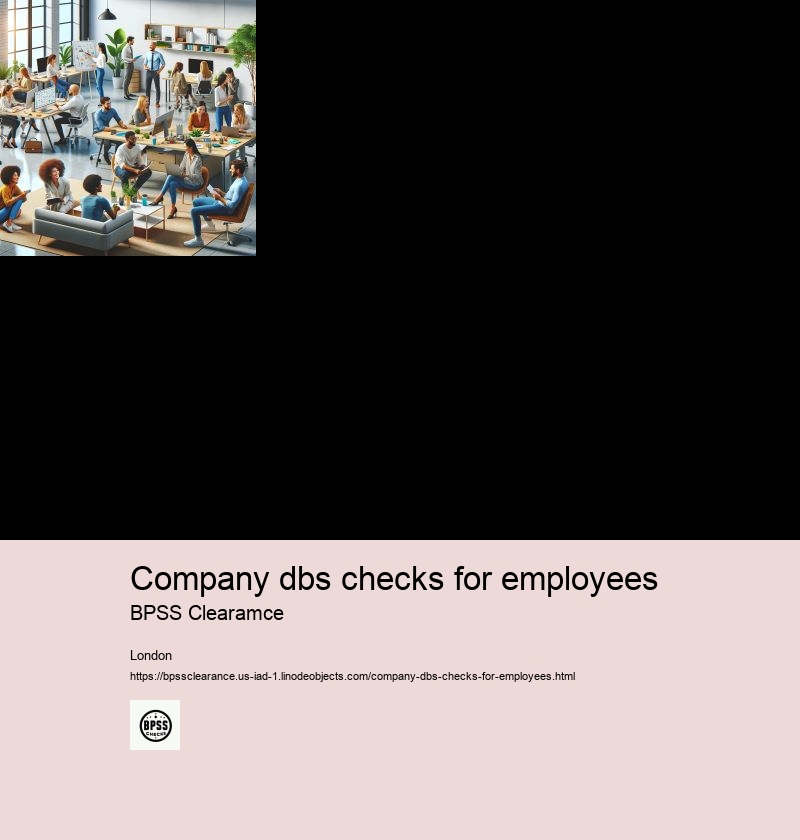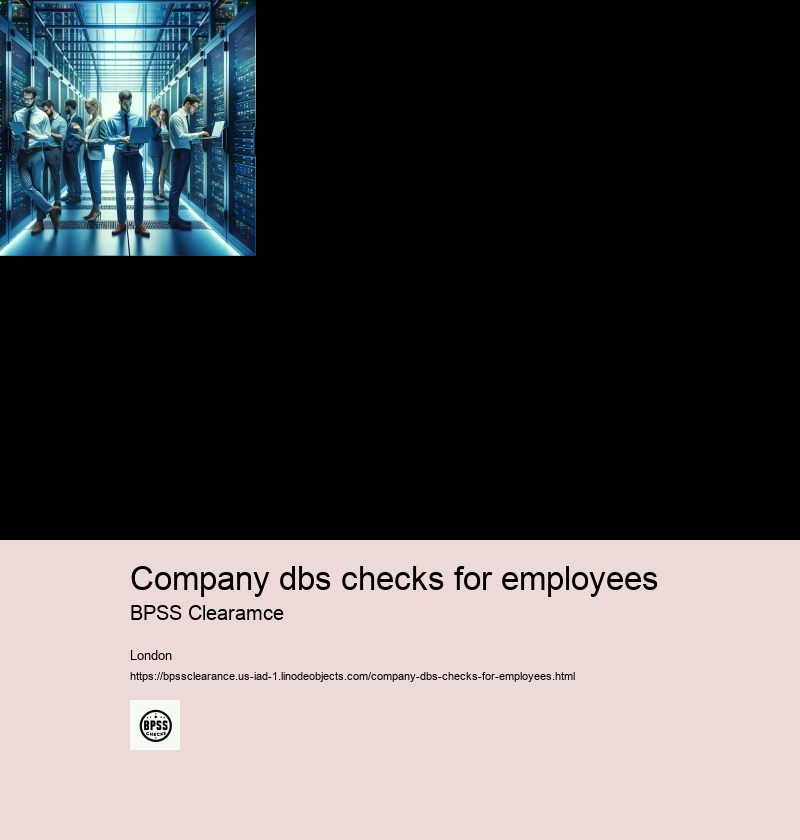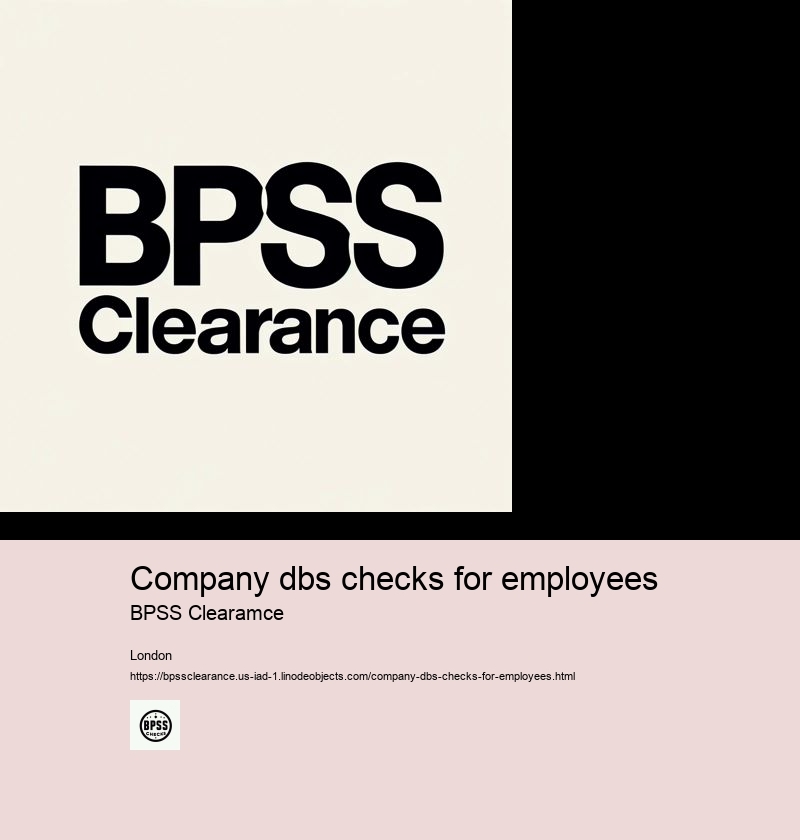company dbs checks for employees
Compliance auditing
- Cooperate fully with any additional background checks or enquiries that may be necessary.
Employers in these sectors may request BPSS checks to ensure that their potential or current employees meet the necessary security standards to protect against risks such as espionage, terrorism, or sabotage.
- Complete and submit all required documentation accurately and truthfully.
Company dbs checks for employees - Compliance auditing
- BPSS regulations
- Employment gaps analysis
- Enhanced DBS



